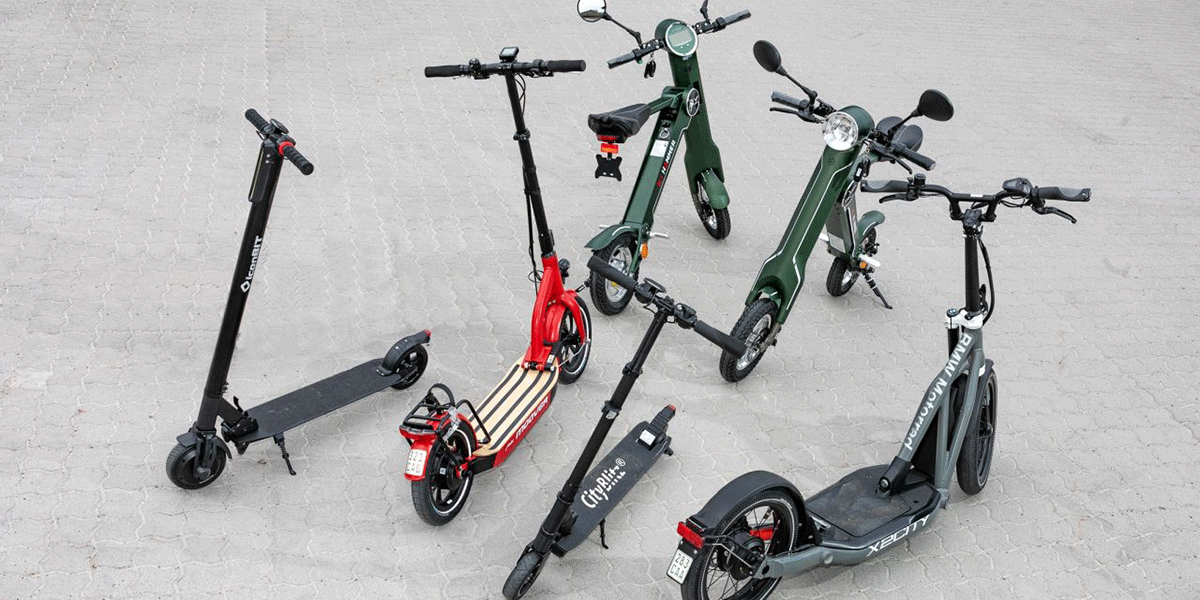German gov’t green lights electric kick scooters (PLEV)
The German Federal Council approved the Ordinance on Small Electric Vehicles (eKFV) today, which will soon allow electric kick scooters to be used on the road. However, the government will have to implement changes yet again as a prerequisite for final approval.
The Ministry of Transport has declared their preparedness to do so. “In the summer” the electric scooters could finally receive official permission for the road, it was said. The changes concern two points, age and use: The scooters should generally only be permitted for people aged 14 and over and should not be allowed to drive on sidewalks; only on roads and cycle paths. The government had previously considered a minimum age of 12 years and wanted to allow slower models up to 12 kph to use the sidewalk.
As far as the sidewalk discussion is concerned (which, by the way, is not only raging in Germany but also, for example, in France), Transport Minister Andreas Scheuer had already approached the German states in the run-up to the current vote. A week and a half ago, he said: “My aim is to make new forms of transport possible in such a way that they do not endanger anyone”. He added that he was prepared to take out the provision for driving on sidewalks from the planned ordinance and thus to respond to the demands of the German states.
In view of the changes, the German Federal Council now considers it sensible to lay down uniform rules and to set a speed limit for all at 20 kph. While insurance is compulsory, this does not apply to helmets or moped driving licences. This was already stated in the draft approved by the Federal Cabinet in April and will remain so.
Before the approval comes in summer, the practical suitability of electric kick scooters is already being tested in individual pilot projects such as the sharing services in Bamberg and Munich.
Electric kick scooters permitted in public transport depending on dimensions and weight?
Until now, the question whether it would be permitted to carry foldable electric pedal scooters in buses and trains had also been standing in the room. The Association of German Transport Companies (VDV) is now announcing that it has recently recommended its members to allow electric kick scooters to be taken on buses and trains if they are not too heavy and collapsible. If they fulfilled these criteria, they fell under Article 11 of the Conditions of Carriage and were to be treated as an “object” that could be taken along, according to the industry association. According to its own information, represents more than 600 public transport and railway undertakings in Germany. According to the VDV, however, larger and non-collapsible electric pedal scooters with “bicycle-like dimensions” are not covered by this regulation, but by the “Special Conditions of Carriage” with bicycle transport if necessary.
According to Stefan Heimlich, Chairman of the Auto Club Europa (ACE), such a regulation based on weight, wheel size and dimensions is too complicated. “In order for electric scooters to develop their full potential and become an attractive addition to public transport on the first and last mile, a consumer-friendly solution must now urgently be found,” says Heimlich and indeed, clear legislation and user-friendliness seem key.
Germany has been relatively inert regarding electric micro-mobility. Until now, PLEVs (Personal Light Electric Vehicles) have not been legally approved for use on public roads, despite the fact that legislation was passed European level some time ago.
handelsblatt.com, newstix.de (PLEVs on public transport), ace.de (ACE) (all in German)
Additional reporting by Nora Manthey.





0 Comments